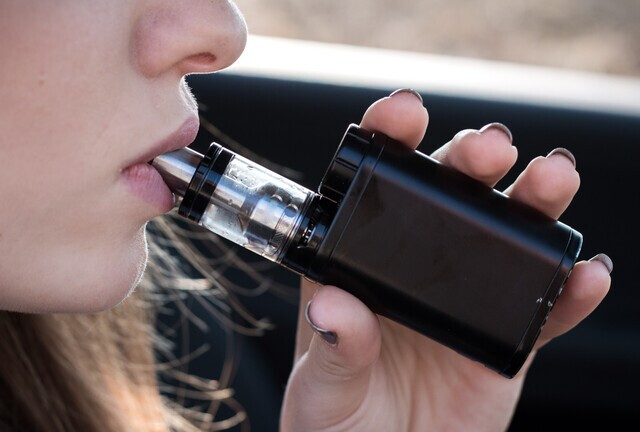
MONTEVIDEO, Uruguay – The Uruguayan government has once again banned the import and sale of heated tobacco products and e-cigarettes, reversing regulatory relaxations introduced by the previous administration in 2021. This decision is seen as a reaffirmation of Uruguay's status as a global leader in tobacco control and a strong expression of its commitment to improving public health.
Background and Content of Strengthened Tobacco Control Policy
Laura Llambí, Director of the National Tobacco Control Program under the Uruguayan Ministry of Public Health, announced the measure at a press conference on June 3. Llambí stated that in addition to the ban on the sale and import of heated tobacco products and e-cigarettes, the promotion, advertising, and use of related products in enclosed spaces would also be fully prohibited. She added that the mandatory uniform packaging (neutral packaging) regulations for tobacco products, which had been relaxed by the previous government, would also be re-strengthened.
This decision signifies a clear policy shift by the Uruguayan government. Uruguayan President Yamandú Orsi emphasized at the press conference, "With this decision, Uruguay has recovered the direction and flow of the health-related policies it has maintained." He stressed, "We are strengthening the work line and accumulated strategies that have positioned us as a leading country in tobacco-related health issues for a long time. While policies sometimes face delays or slowdowns, ultimately, it's a matter of political decision and speed."
Uruguay's History of Tobacco Control: A Global Pioneer
Uruguay is recognized globally as a pioneer in the tobacco control movement. This is not solely because it was the first country to comprehensively apply the World Health Organization's (WHO) Framework Convention on Tobacco Control (FCTC). Uruguay further solidified its reputation by winning a six-year legal dispute against the tobacco company Philip Morris.
In March 2008, Law 18256, promulgated under the leadership of left-wing President Tabaré Vázquez, set an important milestone for Uruguay's tobacco control policy. This law included strong regulations such as:
A complete ban on smoking in all enclosed public places and workplaces.
Prohibition of the use of tobacco logos, brands, or brand elements on products other than tobacco products.
Prohibition of the manufacture or sale of other items in the shape of tobacco products.
Prohibition of creating games using tobacco brand trademarks.
Prohibition of using false or misleading promotional phrases on tobacco product packaging.
Mandatory insertion of health warnings and images (pictures or pictograms) depicting the harmful effects of tobacco consumption on all tobacco product packaging.
Furthermore, Presidential Decree 120/019, promulgated in April 2019, introduced the 'plain packaging' system, mandating a single, uniform color for all tobacco product packaging, thereby fundamentally blocking tobacco companies' marketing through brand differentiation. This series of strong measures has made Uruguay a model example of global tobacco control policy.
E-cigarettes and Health Issues: International Trends and Uruguay's Choice
In recent years, the global increase in the use of e-cigarettes and heated tobacco products has led to continuous debate about their health effects. The rising e-cigarette use among young people, in particular, has caused significant concern for governments and health authorities worldwide. Health experts remain skeptical about claims that e-cigarettes are less harmful than traditional cigarettes, warning that they can lead to nicotine addiction and other health problems. Uruguay's recent decision is interpreted as a proactive response to these international concerns.
Paraguay's Case: E-cigarette Use Among Youth
Uruguay's strengthened tobacco control policy contrasts with the situation in neighboring Paraguay. In Paraguay, 12.5% of adolescents use e-cigarettes, while only 3% smoke traditional cigarettes. This statistic highlights how rapidly e-cigarettes are spreading among young people and supports the Uruguayan government's reasons for regulating e-cigarettes. Research has shown that e-cigarettes can cause various health problems, including lung damage and infertility, raising growing concerns about the health of the younger generation.
Uruguay's latest decision once again demonstrates its firm commitment to tobacco control and is expected to spark further discussion globally on the regulation of e-cigarettes and novel tobacco products. Uruguay is sending a clear message that it prioritizes public health through its continuous efforts towards a tobacco-free society. It remains to be seen whether these strong measures will influence other countries.
[Copyright (c) Global Economic Times. All Rights Reserved.]




























